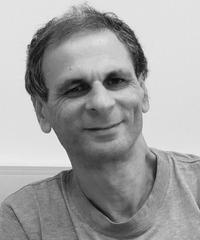-
Mathematical models of human memory

Michail Tsodyks
*This event is in-person and open only to Princeton University ID holders
Mathematical models of human memory
Abstract: I will present my recent work on mathematical modeling of human memory, as studied with random lists of words and other items. I will argue that memory recall of random lists is governed by the universal deterministic process resulting in the analytical relation between the number of items in memory and the distribution of the number of items that can be successfully recalled. These results are well supported by the experiments on human subjects. The retention of items in memory on the other hand is not universal and differs for different types of items being remembered, in particular retention of words and sketches is different even when sketches are made to only carry information about an object being drawn. I will discuss the putative reasons for these observations and introduce the phenomenological model predicting retention curves, i.e. the probability to retain an item in memory as a function of time elapsed since it was presented.
Bio: Misha Tsodyks is a leading theoretical neuroscientist whose research has influenced important areas of neurobiology and the development of a quantitative understanding of brain functioning and human cognitive abilities. His work is focused on identifying neural algorithms that define functions of cortical systems and, in recent years, various aspects of cognitive behavior. From demonstrating the importance of sparsity in neural networks to providing deep insights into the mechanisms of short-term synaptic plasticity and working and associative memory, Tsodyks has devised conceptual models that make quantitative testable predictions for experiments. Professor Tsodyks has received numerous awards for his work in the field including the Mathematical Neuroscience Prize and the Morris L. Levinson Biology Prize, membership of the Society for Neuroscience, and membership of the editorial board of various scientific journals. As of 2019, he is the C.V. Starr Professor at the Institute for Advanced Study. He also teaches at the Weizmann Institute for of Science.
